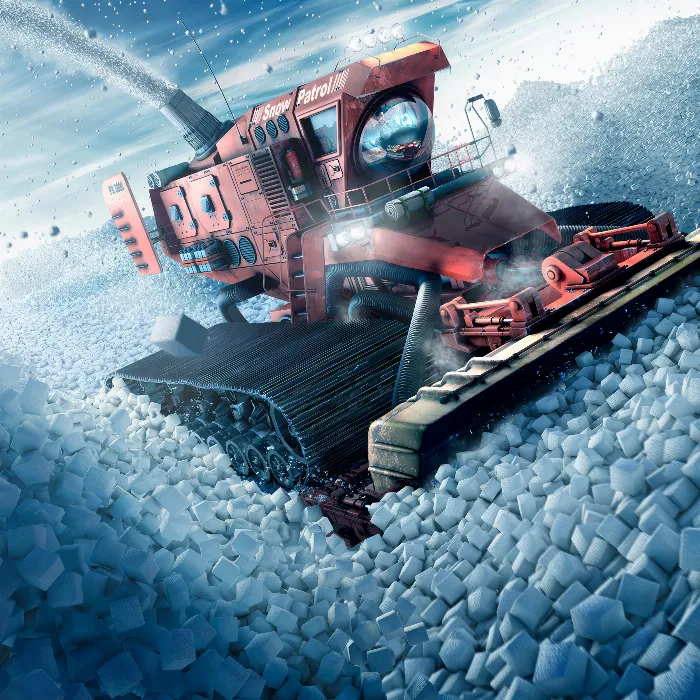You have the ability to create impressive animations in CINEMA 4D that take into account the physically accurate behavior of objects. Especially when working with MoGraph, it is important to have a basic understanding of animation. In this guide, I will show you how to create a landscape with MoGraph to develop a realistic scene featuring a snowdozer and falling sugar. Let's dive right in.
Main Insights
- MoGraph allows for the distribution of objects within a scene.
- Physical simulations help create natural movements.
- Collisions and material properties influence the behavior of objects in the animation.
Step-by-Step Guide
1. MoGraph Setup: Placing Objects
Start by creating the basic objects that you want to use in your scene. In this guide, we will use sugar cubes that will be placed on a landscape. Make sure to select the right settings to optimize distribution and avoid unwanted intersections.
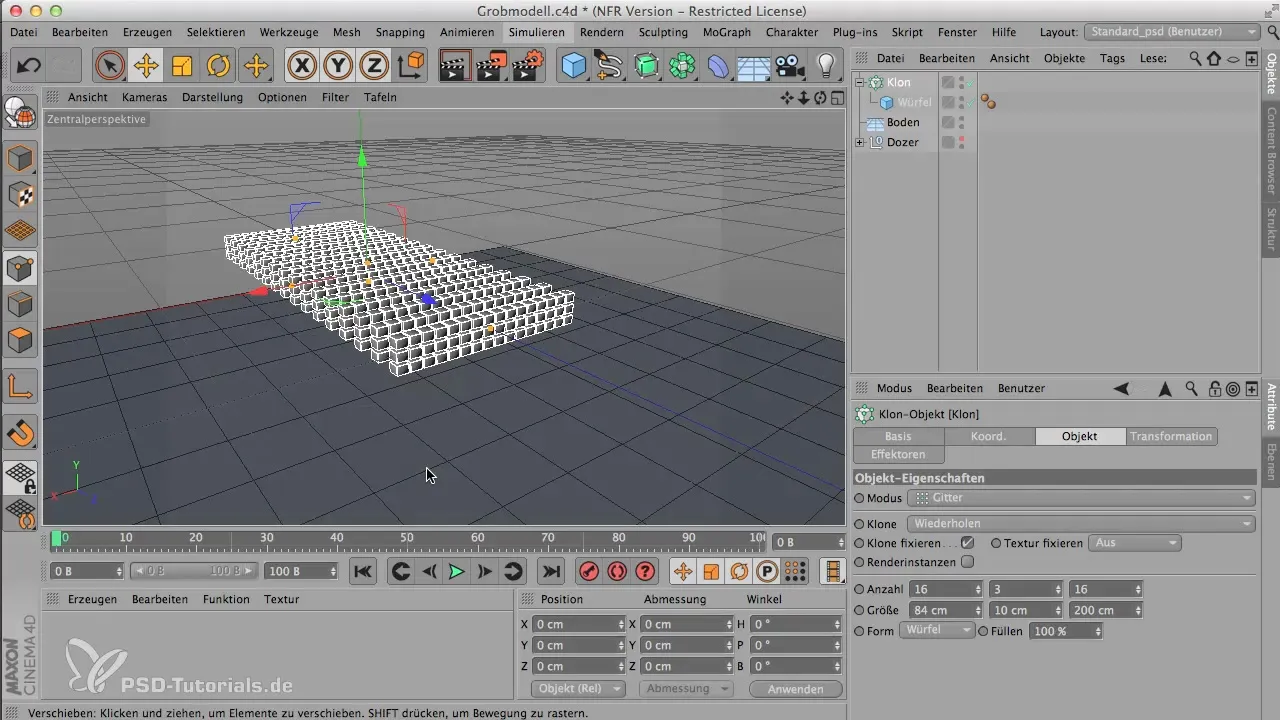
2. Implementing Collisions
Before dropping the sugar cubes, it is important to define collisions. Use simulation tags to control the behavior of the objects under gravity. Set the landscape as a collision so that the sugar cubes land realistically on the ground.
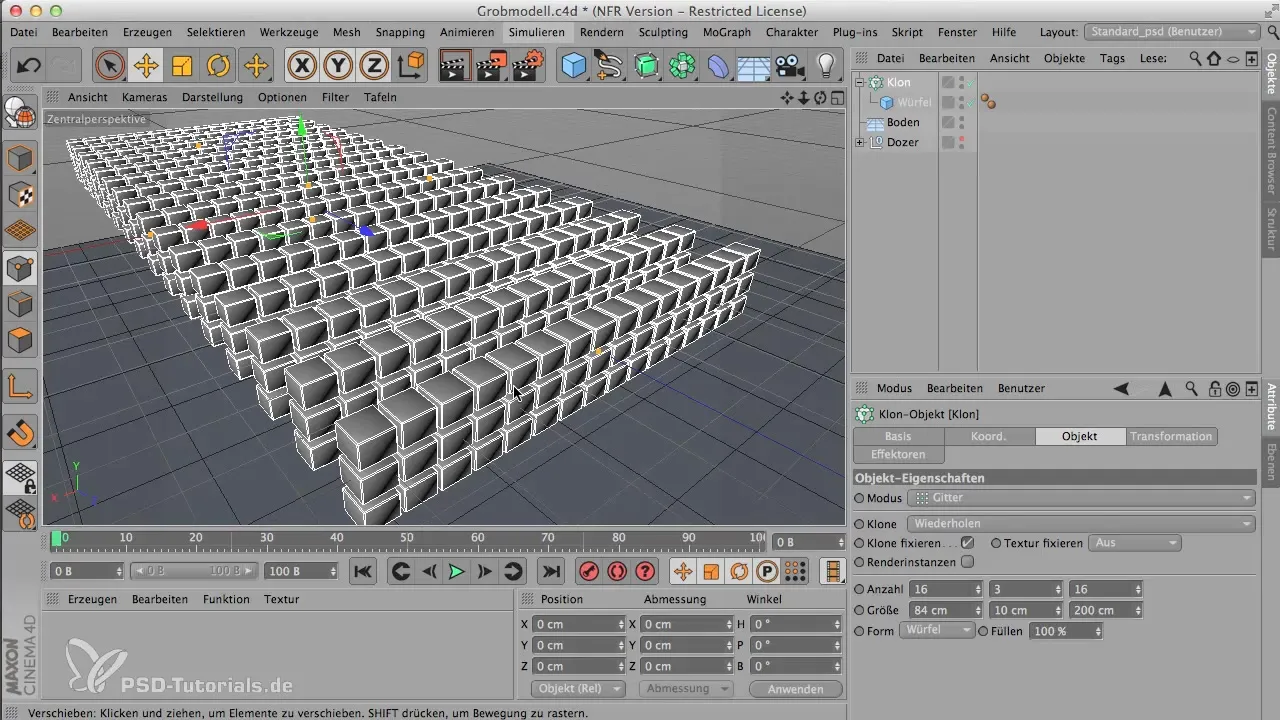
3. Adjusting Landscape Object
To reduce the number of sugar cubes needed, create a landscape object with a hilly shape. This will help ensure that the sugar cubes not only fall on the flat plane but also distribute across the landscape. Reduce the number of segments for smoother animation.
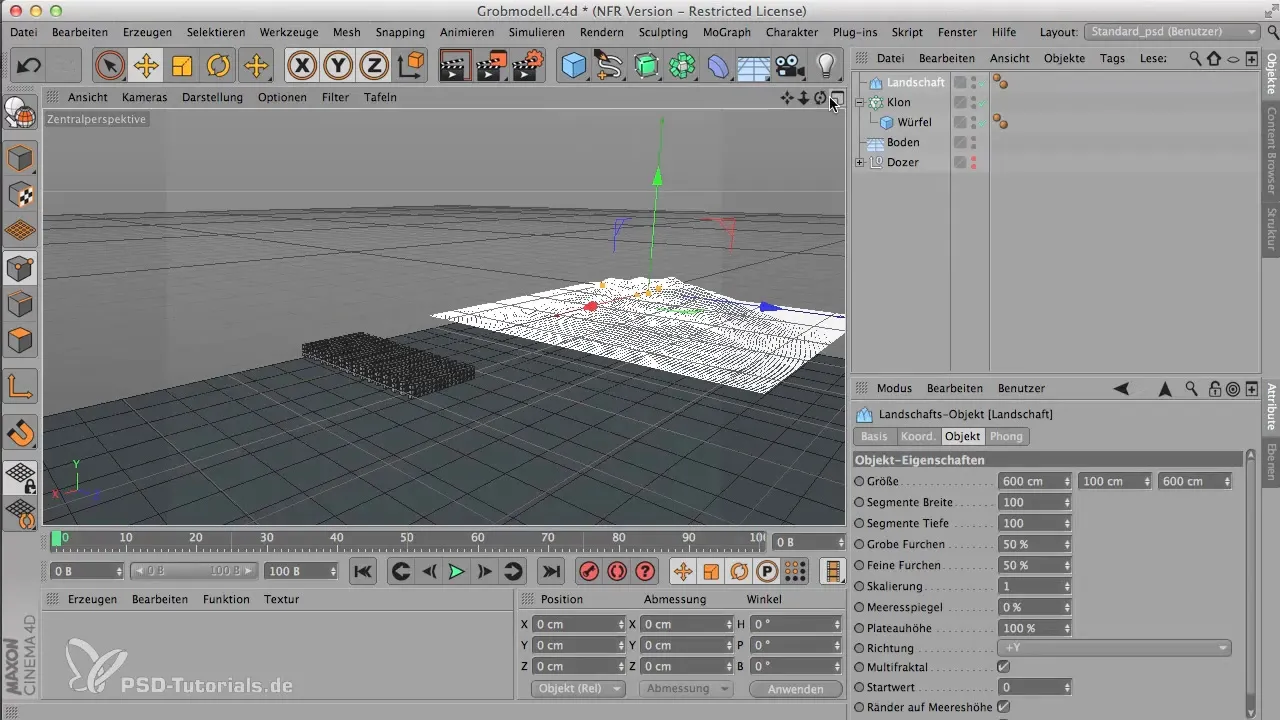
4. Adding Material
To realistically depict the sugar, choose a suitable color and light settings for the material. A slightly bluish hue with minimal transparency can help imitate the appearance of sugar. Also, reduce the shininess to achieve the desired texture.
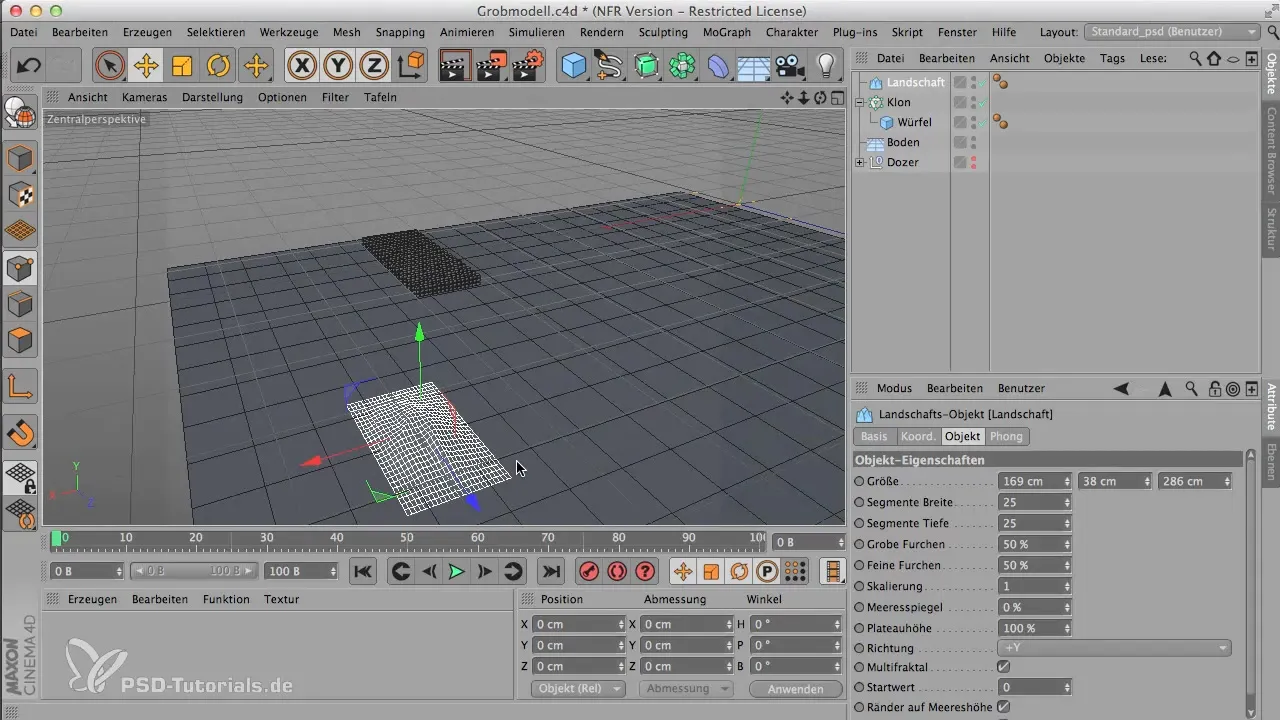
5. Attaching Body Tags
Each of the objects requires a Rigidbody tag to correctly respond to gravity and ensure collisions. Make sure that the elasticity of the body and collision tags is minimized so the sugar cubes do not bounce off the surface.
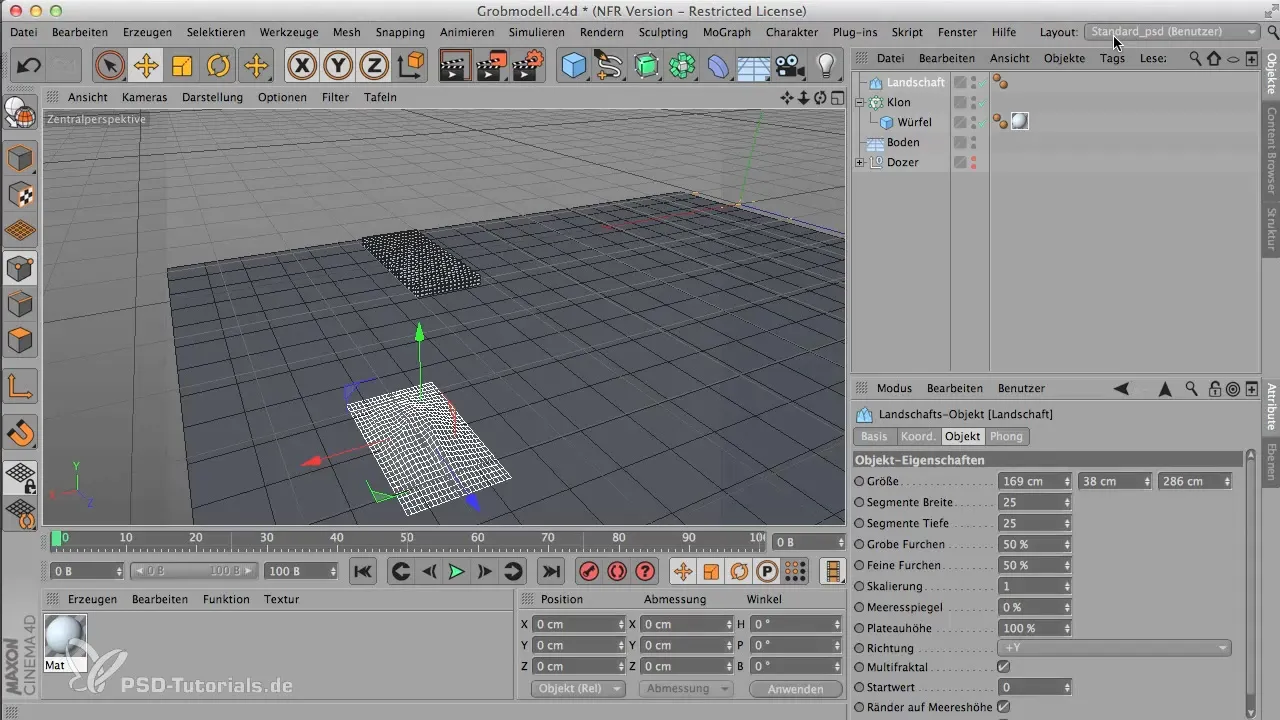
6. Testing the Animation
Start the playback to check if the animation of the falling sugar cubes works correctly. Pay attention to how the cubes land on the landscape object and ensure they are properly placed.
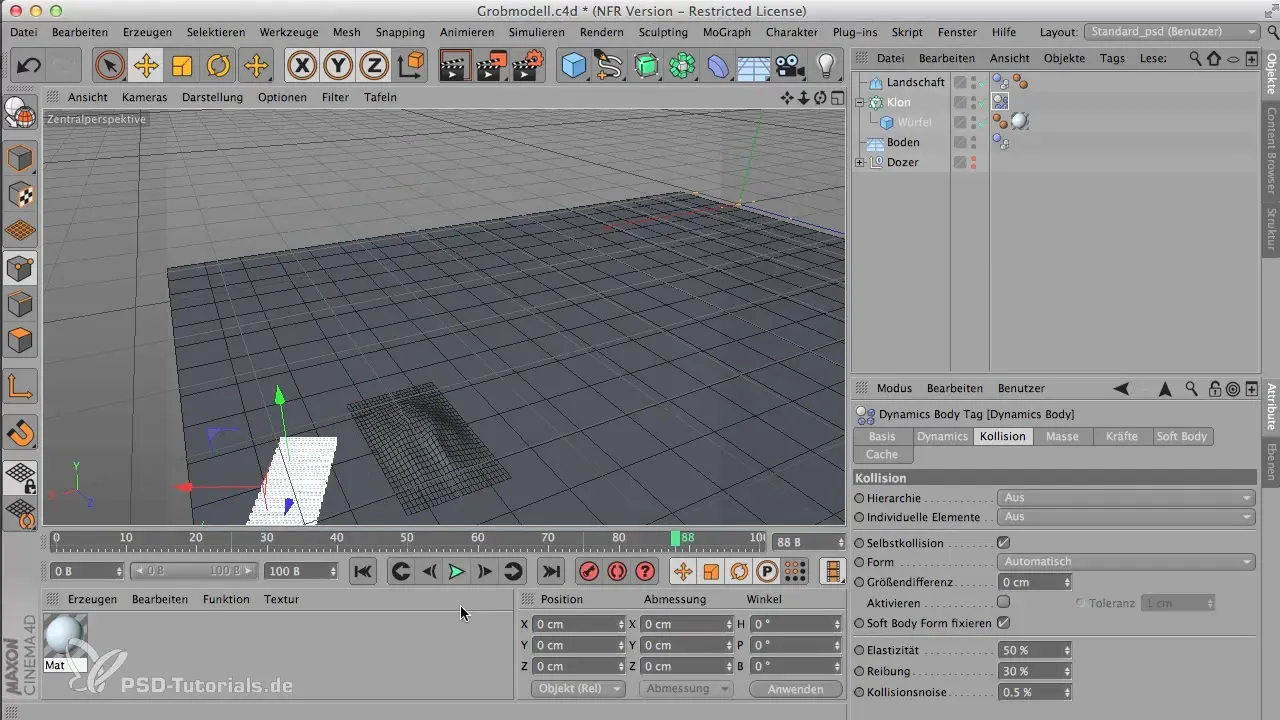
7. Optimizing Movement
If the animation does not achieve the desired effect, adjust the time scale in the project settings to make the movement slower. This will give you better control over the animation and the placement of the sugar cubes.
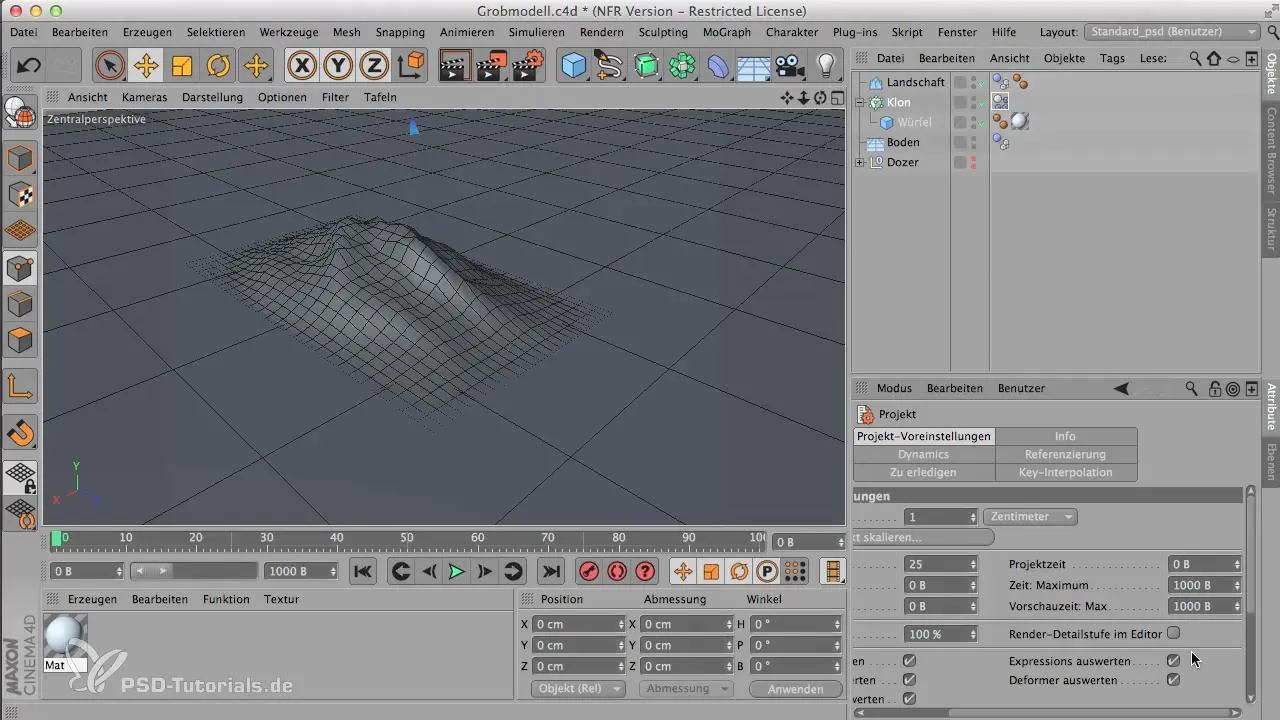
8. Fine-Tuning Collisions
Check the collision settings for the sugar cubes and the landscape to ensure that the objects do not intersect. Increase the friction settings so that the sugar cubes stay in place even after landing.
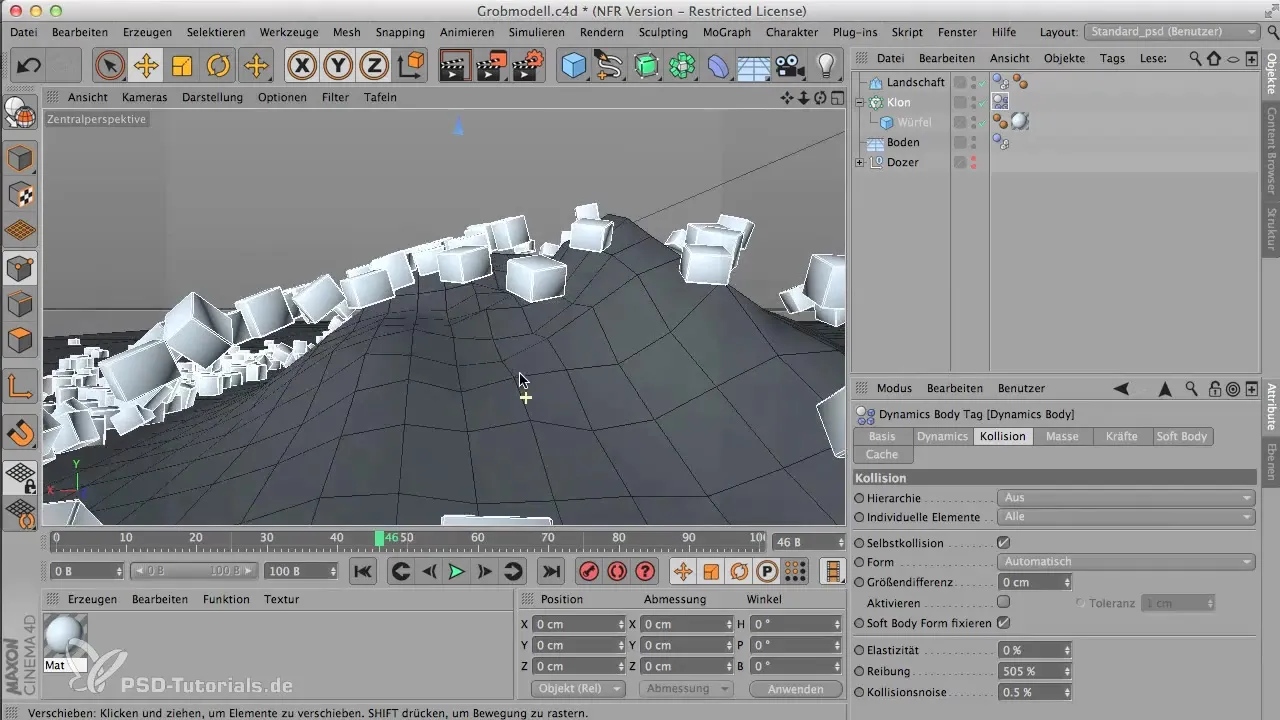
9. Visualizing Final Results
To perfect the scene, add the fruit again and adjust the number of sugar cubes to achieve a realistic look. Use rendering tags to ensure that the sugar cubes stand out in the final composition.
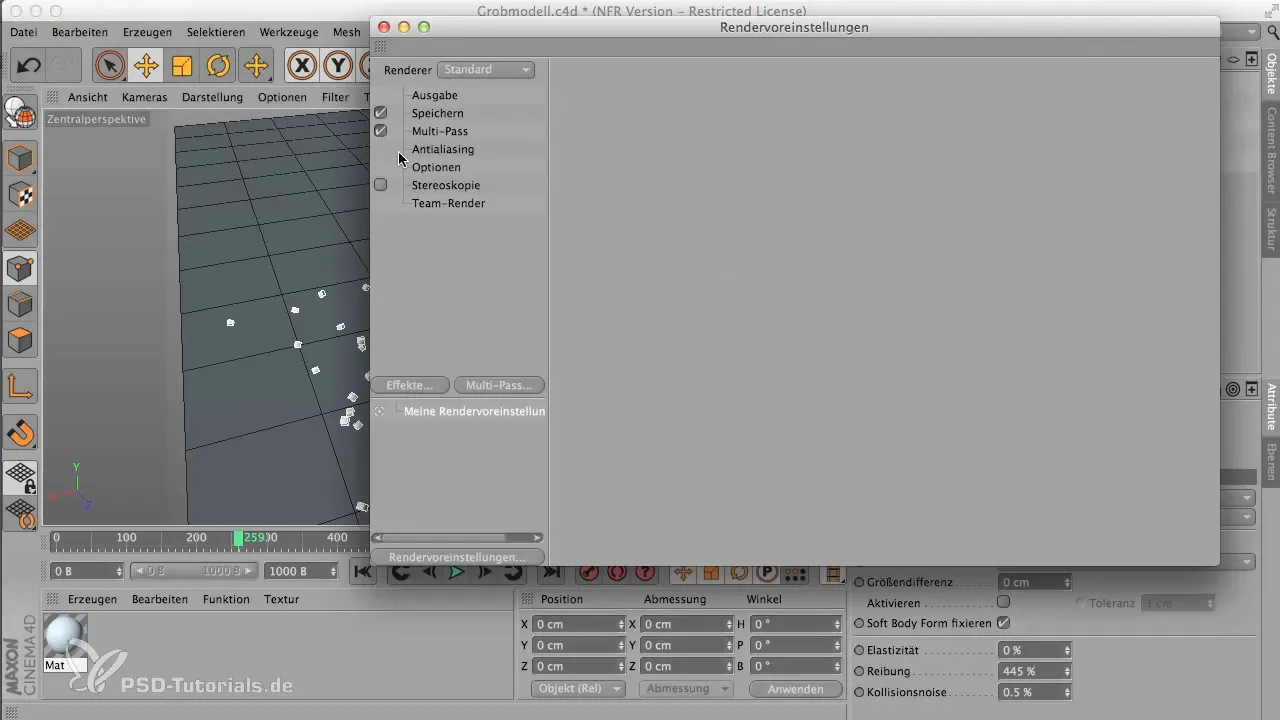
Summary – Creating Animation in CINEMA 4D: MoGraph for Realistic Scenes
Using MoGraph in CINEMA 4D can help you create impressive animations based on physically accurate simulations. By adjusting collisions, materials, and simulation tags, you can ensure that your objects appear natural and believable in the scene. Experiment with different settings to achieve the best results.
Frequently Asked Questions
How can I increase the number of sugar pieces?You can increase the number of sugar pieces through the clone generator in the MoGraph settings.
Why do the sugar cubes not stay on the landscape?Ensure that all collision tags are set correctly and the elasticity as well as friction are set appropriately low or high.
How do I change the simulation settings for a smoother animation?Go to the project settings and adjust the time scale to reduce the speed of the animation.
Are the geometries of the landscapes and sugar optimized?Yes, make sure to reduce the number of segments of the landscape so that the animation runs smoother without compromising quality.
